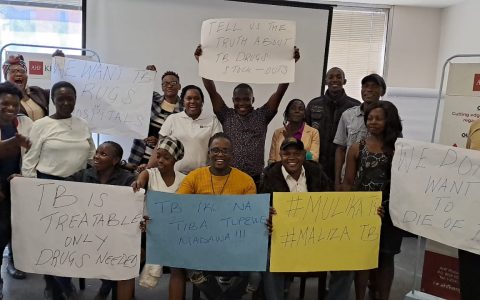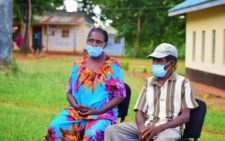Advocates throw caution over shortage of infants vaccines

Infants are at risk of contracting Tuberculosis if the Bacillus Calmette-Guerin (BCG) vaccines’ shortage persists, civil society advocates have cautioned.
Last month, the Ministry of Health announced an injection of Sh1.25 billion from the counterpart Finance Ministry for the procurement of vaccines to alleviate the shortage, however, reports from some counties show that the jabs have not arrived.
Of concern, is the unending shortage of the BCG, which some non-state actors fear could contribute to the rise in fatalities among infants.
Peter Ong’ola, the Executive Director, Wote Youth Development Projects, Kenya confided to the People Daily yesterday that the BCG vaccine has not been procured for eight months, further exacerbating the healthcare challenges in the country.
“Although recent advancements in drugs and treatment regimens have improved efforts against TB, achieving the End TB targets relies heavily on TB prevention strategies.
“However, the shortage especially for prevention and treatment of the disease is proving to be a challenge without the availability of this lifesaving vaccine,” he said.
End TB targets and TB prevention strategies encompass TB infection prevention and control (IPC), the administration of the BCG vaccine to shield children from severe TB forms, and TB Preventive Treatment (TPT).
TB prevention
IPC and BCG vaccination, he explained, have been pivotal in global TB prevention and control initiatives for many years.
Besides the BCG shortage, Kenya has in recent times experienced a significant shortage of the DTP (Diphtheria, Tetanus, and Pertussis) vaccine for the past 10 months, impacting availability in public hospitals.
“Limited investment in new TB diagnostics, medications, and vaccines has hindered progress in these areas,” Ong’ola said, emphasising that there is need for efforts at scale to combat TB, which remains fatal among infectious diseases globally.
While funding seems to be one of the reasons, some of these vaccines are marked out of stock; other schools of thought feel that lack of a positive attitude towards immunisation in other communities is hampering availability.
Behaviour change
According to the Centre for Behaviour Change and Communication (CBCC) through a partnership with the United Nations Children Fund (UNICEF) Kenya says there is need for social behaviour change among Kenyans, in order to address the existing gaps. The two organisations have been supporting uptake of vaccination from childhood to adulthood through a multimedia campaign on the Digiredio Social and Behaviour Change platform. This consists of community and regional radio stations.
“CBCC with the Ministry of Health’s National Vaccines Initiative Programme has been targeting both children and adolescents as part of an integrated routine immunization system for the promotion of universal health coverage,” a communications and advocacy strategist for the CBCC, said. The person is not, however, authorised to speak to the media.
However, according to the officer, uptake of various vaccines is low due to various factors including, parental fears on safety of the vaccine, personal, cultural, and religious reasons and Parental misinformation and disinformation.
Various studies have indicated several gaps associated with immunization including, children who are not immunized at all since birth, meaning zero-dose cohort, and those that only get first dose and miss the third and fourth dose in a row, hesitancy among adolescents, especially towards Covid-19 and the Human papillomavirus infection (HPV) vaccinations, and negative attitudes and perceptions on immunization and vaccination by men.
“To increase immunization and vaccine uptake and support this campaign, CBCC and NVIP have positioned caregivers and young people as social and peer influencers,” intimated the officer.
The campaign has been targeting caregivers and teenagers in 31 counties including Elgeyo Marakwet, Lamu Mombasa, Taita Taveta, Embu, Meru, Tharaka Nithi, Kitui, Machakos, Nyandarua and Nyeri among others. This shortage has raised concerns about the potential resurgence of Polio and TB cases, as newborns are unable to receive crucial life-saving vaccinations on schedule.







